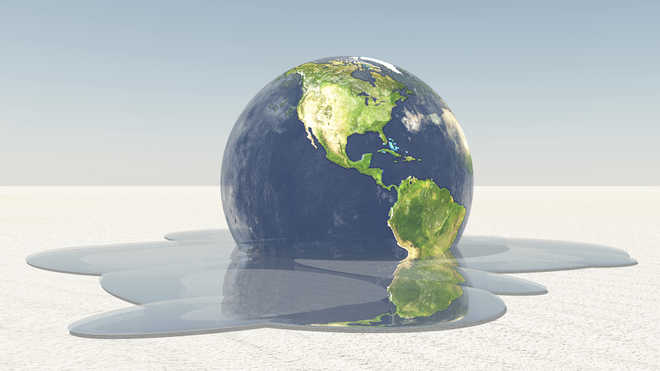
Photo source: Thinkstock
OSLO, March 7
Global warming will disrupt four-fifths of the world's oceans by 2050 if greenhouse gas emissions keep rising, threatening fish that are the main source of food for a billion people, scientists said on Tuesday.
Curbs on man-made emissions, however, would give marine life more time to adapt to warming conditions or for marine life from algae to cod to shift to cooler waters nearer the poles, they said.
"By 2050 around four-fifths of the ocean surface will be affected by ocean acidification and ocean warming," lead author Stephanie Henson, of the British National Oceanography Centre in Southampton, told Reuters of the findings.
Carbon dioxide, the main greenhouse gas, forms a weak acid in water. Currently, only about 10 percent of the oceans are under stress from the twin impacts of high temperatures and acidification, she said.
Cuts in greenhouse gas emissions, in line with goals set by almost 200 nations under a Paris Agreement on climate change in 2015, could limit the impact to two-thirds of the ocean by 2050, giving marine life more time to adapt, the scientists said.
Declines in the amount of oxygen in the waters and a reduction in nutrients, both linked to climate change, would add to stresses on the oceans this century, they wrote.
Figuring out the impact is important because one in seven of the world's population, or about a billion people, depend on the oceans as the main source of protein, according to the experts in Germany, the United States, France, Norway and Britain.
The effects on individual species — such as lobsters, herring, sharks or whales — and on the ocean life as a whole were “poorly understood”, they wrote in the journal Nature Communications.
There are, however, signs that marine life can resist change. Bright-coloured damselfish found on corals such as the Great Barrier Reef off Australia can adapt within a couple of generations to higher temperatures, they wrote.
Many fish species, such as cod or haddock, are moving north in the Atlantic to cooler waters.
Maria Fossheim of the Norwegian Institute of Marine Research, who was not involved in the study, said some fish stocks have been moving northwards far faster than the 40 kms (25 miles) a decade estimated by a UN panel.
"But Arctic fish don't have anywhere to go," she said of those already used to the coldest waters. — Reuters



























